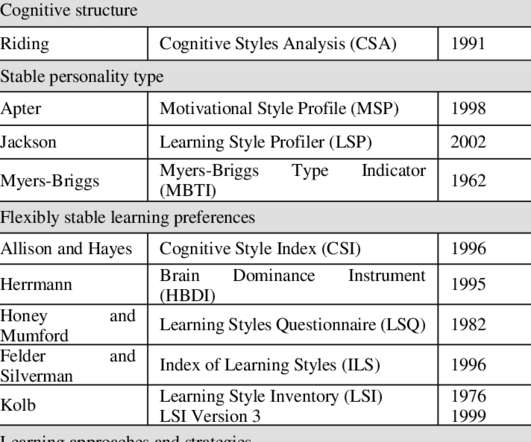Evaluating Your eLearning
eFront
JULY 21, 2015
Similarly, research in game studies has generally focused upon approaches based upon playing leisure games, and therefore do not take enough account of factors including the context, learning theory and practice and the attributes of the learner and learner group.” (de de Freitas & Oliver 2006, p.262). References. de Freitas, S.,








































Let's personalize your content